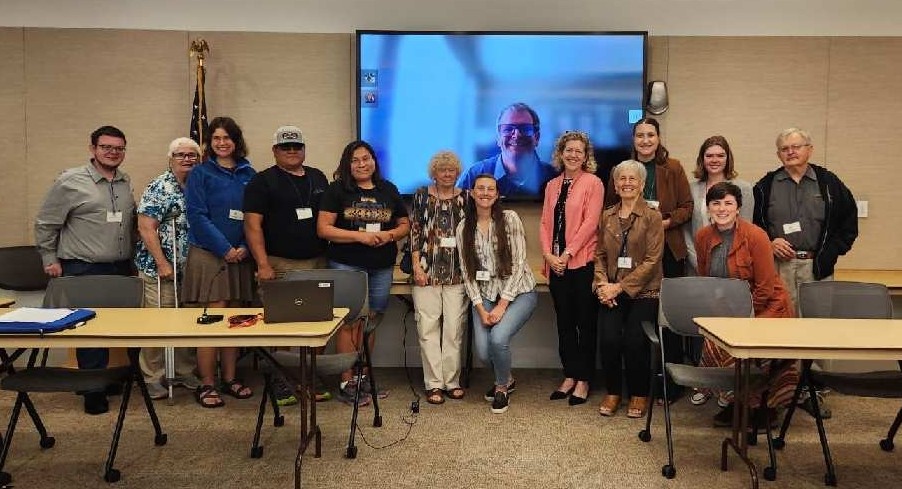Inspired by her grandparents, Tonah Fishinghawk-Chavez proves that caring for the community is an action, not just a word
EPA moves to strengthen air quality standards for oil and gas industry on Fort Berthold Reservation
Questions arise on how frac sand impacts humans, insects, water, soil and grass
Lisa Finley-DeVille

North Dakota Rep. Lisa Finley-DeVille, D-Mandaree, poses for a portrait in Memorial Hall at the state Capitol in Bismarck on Tuesday, Dec. 6, 2022.Jeremy Turley / Forum News Service
On the morning of Aug. 29, Walter DeVille Sr. and I attended the Region 8 meeting of the Environmental Protection Agency, EPA, in Denver with our friends from the Western Organization of Resource Councils.
During this Region 8 EPA meeting, we discussed the need for the EPA to finalize strong methane standards that control oil and gas air pollution. For close to a decade, we have been fighting for strong methane standards.

I support the current effort by the EPA to strengthen air quality requirements for the oil and gas industry because I have seen first-hand over the past 15 years the negative impact oil and gas can have on air quality and public health on the Fort Berthold Reservation.
Also mentioned was reporting other environmental impacts from oil and gas, such as frac sand. Although some say frac sand is not hazardous, we know that frac sand impacts the human lungs.
What effect does it have on other living things, such as soil, insects, grass, and water?
A direct EPA link to the report was given to the oil and gas task force.
I am hopeful that the EPA will do the right thing and swiftly pass strong methane standards to protect the Fort Berthold Reservation communities I represent in the North Dakota Legislature.
We certainly need more protection for our air, and we need them now.
Representative Lisa Finley-DeVille
External
Native organizations and food banks are stepping in to compensate
Indigenous participation may be highest in the climate conference’s history
At an oak savannah near Eugene, Oregon, TEIP interns and elders carry forward a time-honored tradition, restoring meadow health and renewing relationship with the land
Appeals court to rule soon in a case first filed last year
It’s just as important as preserving Native language and culture, he says






